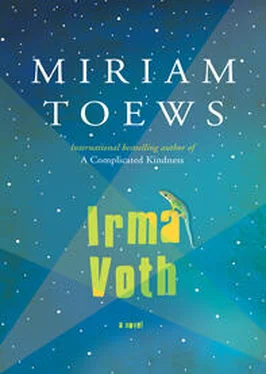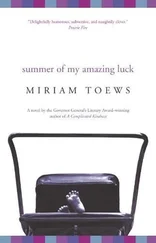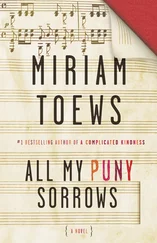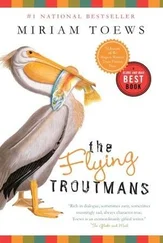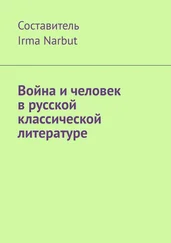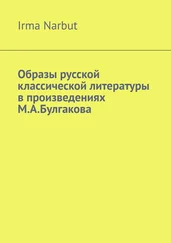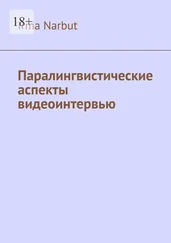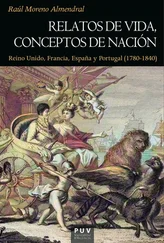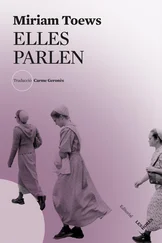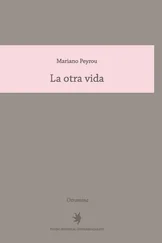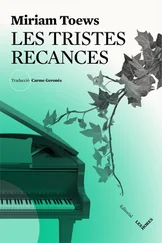Let’s go in the house, I said to Aggie.
No, I want to hear what they’re saying, she said.
Aggie, I said. Let’s go in the house.
No, I’m going to wait here. You go.
He might drag you back home, I said.
He can’t, she said. Can he?
Of course he can, I said. Come into the house already. We’ll have Oveja.
We walked past Diego and Alfredo and his wife and our father. Oveja barked at them and I told him to shut up.
Don’t look at him, I said to Aggie. Don’t act scared.
I’m not scared, she said.
Our father said something to us, something I couldn’t understand. If it was a harsh word he said it with a catch in his throat, like he wasn’t convinced. Or that may have been my imagination. Tenderness bleeding like sap through bark. Maybe not. Then he said something to Diego.
It’s not your property, he said. It doesn’t belong to you.
I’m renting this house, said Diego, and the land that it sits on. So leave now, please. We have work to do.
Whosoever shall seek to save his life shall lose it, said my father. And whosoever shall lose his life shall preserve it.
Pardon? said Diego.
I tell you, said my father, in that night there shall be two men in one bed. The one shall be taken and the other shall be left.
C’mon, Aggie, move your ass, I said. Let’s go inside.
Two women shall be grinding together, said my father. The one shall be taken and the other left.
Irma, said Diego, what is he saying to me?
I mumbled a few words, nothing really, and pushed Aggie towards the house.
Two men shall be in the field, said my father, and the one shall be taken and the other left!
All right, said Diego, I think I understand now. But—
And they answered and said unto him, where, Lord? And he said unto them, wheresoever the body is, thither will the eagles be gathered together.
Okay, said Diego. Okay. His hands were up to say stop, please, stop.
Then Aggie and I were in the house and couldn’t hear any more of what they were saying. We watched them from the kitchen window. Elias and Miguel had showed up and were standing out there too, looking up towards the sky and clearing their throats. Then Wilson came into the house and said that he had to go right then to the airport with the rushes. He was carrying them and a tiny stuffed backpack.
Can you take Aggie with you? I said.
What? he said. I don’t think so. Why would I do that?
Why not? I said. She can help carry things.
Irma, I don’t think that’s a good idea, he said.
Why not? I said.
Well, he said, it just doesn’t make any sense.
So? I said.
I had started to shake slightly, a bit of old-fashioned trembling, but I was trying not to let it show. Then Diego came into the house and told Wilson to bring back two or three more guys from Mexico City, and to explain to José, the producer, about the money. He spoke so quickly I couldn’t understand exactly what he was saying.
Irma, said Diego, walk with Wilson to the truck and take Oveja. And then come back into the house.
No, I said. I don’t want to leave Aggie in the house without Oveja, I said.
Just to get the rushes to the truck, said Diego, and then bring the dog back inside. Go now.
Oveja and Wilson and I went outside and walked to the truck, past my father and Alfredo and his wife and some of the other crew guys. Wilson put the reels of film and his backpack on the front seat and got into the truck and said he’d see me the next day or the day after and Oveja and I walked back, past all those people who were just looking at us and not talking, and into the house. Then Diego went back outside and said something to Elias who slowly walked away towards the other truck. Diego kept my father talking for a long time. Elias parked the other truck behind my father’s truck so he couldn’t drive away and then he came into the house to get a beer and take a deep breath.
What’s going on? I said.
Diego doesn’t want your father to go after Wilson and steal the film before he can get to the airport in Chihuahua. So I had to block his truck.
I looked out the window at my father standing in the middle of a circle of young filmmakers. Alfredo and his wife had gone to stand in the shade by the barn. His wife had a small, tough body and a huge smile with one dead tooth, and gold-green eyes. I imagined Diego saying cut and everyone going back to their real lives. I stared at my father from behind the windowpane. I knew he was getting tired, that his back was hurting him. He couldn’t stand for very long because of the three-inch lift he had built onto the sole of one of his shoes after the doctor told him he had some kind of scoliosis that had twisted his spine into the shape of a snake. I didn’t want him to hold his hands out that way, palms up, or to wipe the sweat off his forehead with the back of his hand and I didn’t want to see him stammer for the Spanish or English words that would add to the sum of his rage.
He won’t do that, I said.
What won’t he do? said Elias.
He won’t chase Wilson, I said. That’s stupid.
You never know, said Elias. There’s a black … there’s a black storm … no?
Yeah, I said.
Moving like this in circles, he said. Inside. He can’t control it.
Yeah, I said. Tornado.
Yes, said Elias. A tornado doesn’t know what it’s doing. He started to spin around the room intentionally bumping into chairs and walls and kitchen appliances.
I know, I said. You’re a tornado.
We should play music, he said.
He put on some music that would drown out the voices from outside and Aggie and I watched our father and Diego argue to the beat of something called cumbia. Slowly everything became dreamlike and soft in the dying light. Aggie got bored and started making pictures on the wall with the green tape Diego used to indicate to the actors where they should stand. I heard Elias talking on his cellphone. He was excited that he finally had service here on the moon and he was walking around the house trying to make it last. Can you hear me now? I heard him say in Spanish. How about now? Is this better? He lost his connection. Then he swore. Puta . That was my girlfriend, he said. She just agreed to give her body parts away to a hospital or something like that.
That’s pretty nice, I said.
She prefers to give her body to science than to me, said Elias.
Well, science is science, I said. I didn’t know what we were talking about.
That’s true, he said. It’s precise and useful. How can I compete with science?
I didn’t know if he was being serious or not. I told him she’d probably change her mind when she realized how much energy would be involved in donating body parts.
No, Irma, she’d be dead, he said, it would be afterwards.
I am living beneath sea level in a basement apartment in Vancouver, ostensibly taking courses in fine arts and Marxism, I said to myself. It was a line from a letter my cousin had sent to my older sister Katie way back one hundred thousand years ago in Canada. You should join me. You’ll like it here! Sometimes I recite these ancient lines to myself when I don’t know what to say because I always feel my eyes open up a bit afterwards, maybe even shine with something like excitement or guilt, or like pilot fish. Ostensibly taking courses in fine arts and Marxism, I say to myself. You should join me. You’ll like it here.
Diego came into the house and told Elias to turn the music down. My father was alone in the yard, standing close to a shadow cast by the barn. He could have moved into the shade but he didn’t. Alfredo and his wife were gone. Diego told me he wanted to speak to me privately in his bedroom and I followed him down the long hallway that used to belong to my cousins and through the door with the upside-down cross and into his room. He had bottles of what looked like urine lined up against one of the walls. He had piles of books and a very neatly made bed.
Читать дальше
